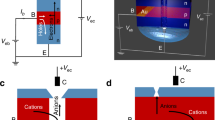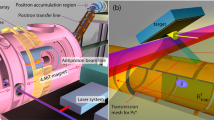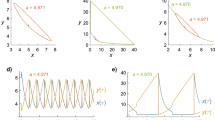Abstract
VARIOUS devices have been described for employing thermionic valves to measure small current. In most of these, the necessary sensitivity is only obtained by using very sensitive galvanometers in the anode circuit of the amplifying valve, which magnify all irregularities due to faulty filament and anode batteries, as well as zero creep effects due to leakage or accumulation of wall charges. Compensation for anode battery fluctuations can be eliminated by the valve bridge method, but such an arrangement, whilst considerably complicating the circuits, only partly removes the causes of unsteadiness, so that a comparatively low limit of sensitivity is attainable, under steady conditions.
This is a preview of subscription content, access via your institution
Access options
Subscribe to this journal
Receive 51 print issues and online access
$199.00 per year
only $3.90 per issue
Buy this article
- Purchase on Springer Link
- Instant access to full article PDF
Prices may be subject to local taxes which are calculated during checkout
Similar content being viewed by others
Author information
Authors and Affiliations
Rights and permissions
About this article
Cite this article
TEEGAN, J. Amplification of the Ionisation Produced by Radioactive Sources. Nature 131, 277–278 (1933). https://doi.org/10.1038/131277c0
Issue Date:
DOI: https://doi.org/10.1038/131277c0
Comments
By submitting a comment you agree to abide by our Terms and Community Guidelines. If you find something abusive or that does not comply with our terms or guidelines please flag it as inappropriate.



